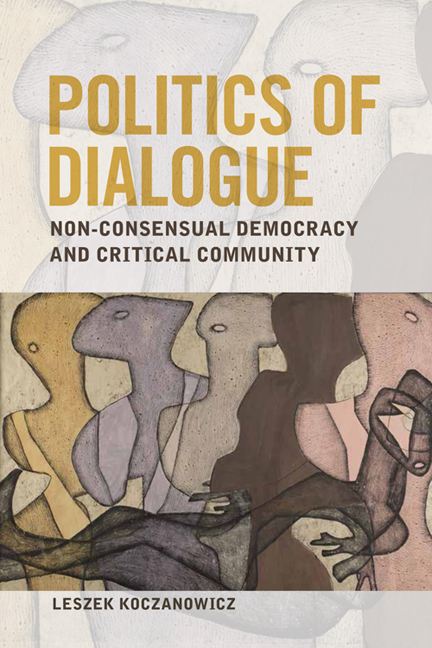3 - Critical Community
Published online by Cambridge University Press: 05 August 2016
Summary
Democracy and Community
Evidently, contemporary societies are fractured by two contradictory tendencies that organise their social life. While, on the one hand, society, by common consensus, cannot exist without the background of shared, generally endorsed values and norms, on the other hand, modern societies, and postmodern ones even more emphatically so, consist of a patchwork of diverse values, norms and regulations, which, as a rule, are mutually incompatible and very often contradictory. The liberal doctrine proposed to accommodate this dichotomy, offering a division into the public and private spheres. This seemed to promote harmonisation of the private differentiation of values and the public acceptance of a unified legal order.
However, the political experience of modernity belies the viability of this simple division. It proves impossible for two reasons. First, democracy itself is not merely a system of procedures and institutions independent of the culture of the particular society in which it operates. Democracy is a form of life in Wittgenstein's meaning of the term:
‘So you are saying that human agreement decides what is true and what is false?’ – It is what human beings say that is true and false; and they agree in the language they use. That is not agreement in opinions but in form of life.
From this point of view, democracy is a form of life enabling the existence of a shared language of politics, which, in turn, fosters the unification of contradictory beliefs by a community of individuals who can understand each other. This concept of democracy is very close to the one developed by the pragmatist philosophers John Dewey and George Herbert Mead. For them, democracy is a system of habits and way of doing things that express themselves in institutions and procedures, and not the other way around. Democracy, thus, has to be anchored in a community defined by a form of life.
Second, if democracy is a form of life, it is also, inevitably, a form of identity. The division into the public and private spheres imposed by liberalism does not work if we address individual and collective identities. It does not seem plausible that all that which is vital to our innermost existence could be relegated outside our political involvement.
- Type
- Chapter
- Information
- Politics of DialogueNon-consensual Democracy and Critical Community, pp. 91 - 145Publisher: Edinburgh University PressPrint publication year: 2014

